17 May 2020
Press Release: INTERNATIONAL DAY AGAINST HOMOPHOBIA,BIPHOBIA,INTERPHOBIA AND TRANSPHOBIA (IDAHOBIT) 2020
Defenders Coalition was delighted to join Kenyans and people across the world in marking the 2020 annual International Day against Homophobia, Biphobia, Interphobia and Transphobia (IDAHOBIT).
This day May 17th was specifically chosen in 2004 to commemorate the World Health Organization’s decision in 1990 to declassify homosexuality as a mental disorder.
It is meant to draw world attention to the untold violence, stigmatization, harassment, othering and discrimination experienced by people with diverse sexual orientations, gender identities or expressions, and sex characteristics.
These people include intersex, lesbian, gay, bisexuals, transgender and gender non-conforming persons.
Defenders Coalition is happy to acknowledge the realization of key milestones in Kenya that will eventually shape the space within which this community exists. Due to a government taskforce on to interrogate the plight of Intersex Persons and give recommendations to the state, Intersex Persons who many a times a marginalized, minority and vulnerable group that continues to face a multitude of challenges and human rights violations from birth including stigmatization, ridicule and discrimination have since been recognized as a gender.
For the first time in history, they were recognized by the Kenyan government , by being counted during the 2019 National Census conducted in August 2019.
This year’s commemoration comes at a time when the world is facing a Covid-19, a pandemic that has threated not only the safety of global citizens but their livelihoods and wellbeing occasioned by a common mitigation effort “social distancing”.
COVID-19, on its advent, has imposed on LGBTI people an unprecedented dual reality – the need for community clashing with the imposed necessity for social distancing – when expressly LGBTI persons have been and continue to be victims of the most extreme forms of social, legal and religious distancing known for the longest time.
It is paramount to note that while many societies around the world have made progress in the acceptance and inclusion of LGBT+ people, Kenya continues to criminalize certain sexual orientations thus LGBT+ people are not entirely safe.
Domestic violence by close relatives and irrational family members continues to be predominant form of violence extended to LGBT+ people even in the absence of the pandemic. The situation has worsened due to teeth wrenching effects of Corona virus disease. It has been amplified now that many LGBT+ people have been forced to return to hostile family homes due to loss of livelihoods.
Defenders Coalition understands that for LGBT+ people today, the situation is dire. We endeavour to continue working to mitigate the risks, security and safety threats that have been amplified by COVID-19.
Defenders Coalition urges the Kenyan Government to expressly meet its commitment under the United Nations Universal Periodic Review (UPR) and adopt a comprehensive equality and non-discrimination law, granting protection to all individuals, irrespective of their sexual orientation, gender identity, expression and sex characteristics for a long term, comprehensive, sustainable frameworks that will ensure genuine, lasting inclusion and acceptance of LGBT+ people.
To the sexual and gender minorities, the Defenders Coalition celebrates you on this day and affirms you of our commitment to champion your rights for your holistic socio-economic wellbeing and general safeguarding of your dignity.
Defenders Coalition
30 April 2020
Nairobi, Kenya
Report on the situation of Human Rights Defenders in Kenya in the wake of COVID -19: Violence, Impunity and Retrogress to police state
Following a declaration by the World Health Organization (WHO) on March 11 2020 on Corona virus disease as global pandemic, speed and nature of its spread, the government of Kenya has put in place a raft of measures to keep her citizens safe by curbing the spread of the virus. These measures include advising citizens to stay at home, corporates to minimize crowds at places of work, banning all public and social gatherings, implementing measures as advised by WHO and the a nationwide dusk to dawn curfew between 7pm to 5 am to be observed by all citizens except for a select institutions and professions classified as essential service providers that took effect on Friday 27th March 2020. This directive, consequently, omitted the recognition of fundamental oversight and watchdog institutions who play a critical role in monitoring the implementation of such directives.
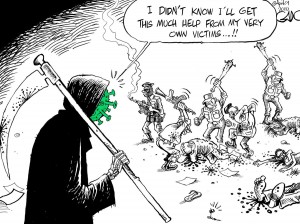
The curfew directive has been the direct cause of numerous human rights violations. Majority of these violations, as you will see below, are cases perpetuated by police officers who are on a wave of using excessive force while enforcing the presidential directive. On the first day of the curfew (27th March) innocent and unarmed home-goers were brutalized, treated with indignity, whipped, battered, violently assembled- an action that was contrary of social distancing directive- and tear gassed even before clock of curfew time.. Horrific images and videos circulated in the media as Kenyans called on the government to bring to book the perpetrators and respect human rights. This incident happened in Mombasa where 16 people were injured as per data.
On the onset of a steady increase in confirmed cases of COVID-19 in Kenya, the government further announced even stringent and stiff measures to contain the spread of the virus. President Uhuru Kenyatta announced a 21-day partial lockdown (cessation of travel) at four counties (Nairobi, Mombasa, Kwale, Kilifi and Mandera on 24th April) that had indicated infection numbers going through the roof and therefore regarded as COVID-19 hotspots.
In his address that was televised on 6th April 2020, the President warned that “We must be ready to go even further if necessary.” Movement of food supplies and cargo was, however, to continue moving in and out of the partially locked down counties through road, rail and air.
Defenders Coalition has put together a report illustrating the impact of Covid-19 on human rights defenders in Kenya.
Read full report here
Photo Credits: Daily Nation
Cartoon artwork: @iGaddo
April 9,
Nairobi, Kenya
Women human rights defenders’ efforts against covid-19 bolstered
Defenders Coalition applauds the timely and critical responses that human rights defenders are taking within their communities to ensure awareness, adoption of the highest hygiene practices and upholding of human rights during this COVID-19 pandemic despite the numerous challenges they face while at it.
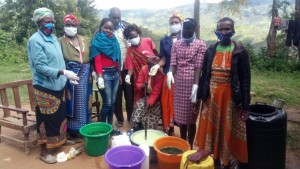
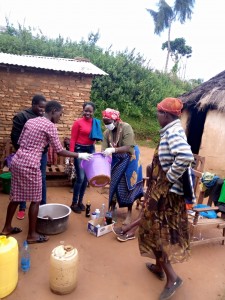
Women from Sengwer Indigenous Women during a soap making activity
Defenders Coalition supported women human rights defenders (WHRDs) networks’ efforts geared towards promoting personal hygiene and access to water for handwashing during COVID-19.
The networks that benefited from the support include Maringo Finest in Makadara, Magharibi Social Justice Center, Feminists for Peace, Human Rights & Justice Centre in Kibera, Turudi Nyumbani in Korogocho, Coalition for Grass-root Human Rights Defenders-Kenya in Mathare, Sengwer Indigenous Women, Nakuru Human Rights Network in Nakuru county, Faiya Women Group from Marsabit and Samburu Women Trust in Samburu.
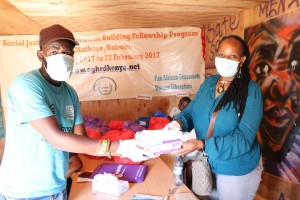
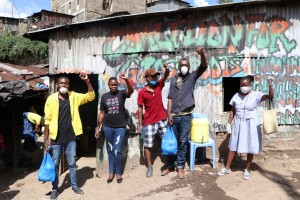
Support at Coalition for Grass-root Human Rights Defenders-Kenya in Mathare
The support commenced by enhancing the capacities of the WHRDs in the networks on a sustainable model of self-soap production for household use and distribution amongst community members.
After their capacities were enhanced, the women would then scale up the support by transferring the skills to their constituents.
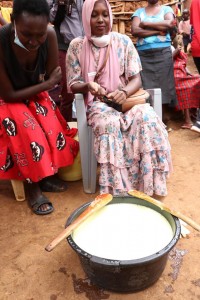
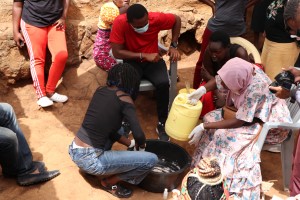
Women from Feminists for Peace, Human Rights & Justice Centre in Kibera duing a soap making demonstration
Some networks also received support to acquire water tanks for setting up public hand washing stations within their communities.
Moreover, the WHRDs were provided with personal protective equipment (PPEs) for personal and loved ones’ safety against corona virus disease while monitoring human rights violations within their communities.
Following the support, the networks are actively engaged in making soap that they distribute door to door or have placed on public handwashing stations within their communities.
You can support these initiatives through sending donations via
Mpesa Paybill Number: 810896
Account: COVID-19 HRD Support Fund
NCBA Bank Account Number: 1001188727
Account Name: National Coalition of Human Rights Defenders – Kenya.
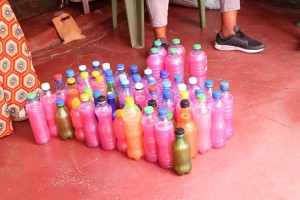
Packaged soap ready for distribution in Maringo
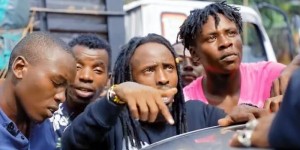
Rapper Smallz Lethal (centre) on a screen capture from his viral video song I am Offended
29th April 2020
Nairobi Kenya
Defender Coalition condemns unwarranted intimidation of artivists working on issues of governance and social accountability
Defenders Coalition strongly condemn the increased threats to human rights defenders – artivists- working on issues of governance, transparency and social accountability in Kenya with the most recent incident being the intimidation of rapper Jim Nyamwaka Nyakundi alias Smallz Lethal, a Kisii-based artist and activist.
In the incident, Smallz Lethal was arrested and taken into custody by both plain-clothed and uniformed police officers on 27th April 2020 for releasing a viral rap video dubbed I am offended.
Just like any other Kenyan, Smallz Lethal is entitled to enjoy his constitutionally-endowed right to freedom of speech and expression to express community grievances to duty bearers and seek to hold them to account for their conduct and performance in terms of delivering services, improving people’s welfare and protecting people’s rights.
Defenders Coalition condemns the use of the Kenya Police Service Officers by duty bearers and other non-state agencies as a tool for instilling fear, mayhem, panic, detaining, charging on tramped up charges, harassing and intimidating human rights defenders.
In a similar incident on 15th December 2019, rapper Kennedy Ombima alias King Kaka was intimidated by a duty bearer after releasing a song dubbed Wajinga Nyinyi, in which the said duty bearer was promiscuously mentioned for taking part in one of Kenya’s biggest corruption scandals during her tenure as the helm of one of the government’s powerful ministries. Defenders Coalition calls on the:
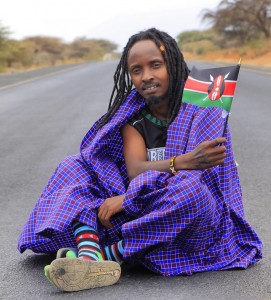
Support to Creative Human Rights Defenders’ efforts of sensitizing communities on Covid-19 intensified
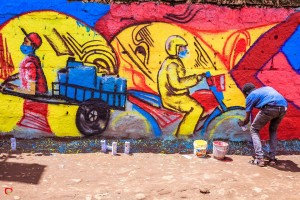
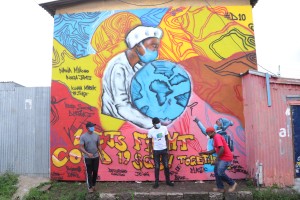
Crisis and uncertainties calls for innovation and creativity to parturition solutions meant to keep communities hopeful, informed and rally their support behind those engaged in efforts aimed at finding solutions to mitigate the effects. COVID-19 pandemic has not been an exception. Human rights defenders from different parts of Kenya are devising innovative and sustainable ways of sensitizing their communities on corona virus disease to keep them safe.
One of the many ways that HRDs have resorted to is through erection of murals on walls within informal settlements in Nairobi. In the month of April 2020, Human Rights Defenders from the Social Justice Centres Working Group-Arts and Sports Department were supported by Defenders Coalition to erect murals on walls in Maringo Estate in Makadara and Kibera area in Nairobi, as an alternative mechanism of sensitizing community members of the corona virus disease.
The first wall painting activity took place on 30 April 2020 at Maringo Estate, where, two walls were painted. On one mural, two medical practitioners clad in protective medical equipment including face masks, are seen holding what seems to be a representation of a globe in their hands and shielding it from what can be interpreted as the dangerous virus of the corona virus disease.
On this mural, the message is to celebrate the resilience of medical personnel, their resilience, risking their lives and sacrifices of not going home to their loved ones at the end of the day so that we stay safe. Moreover, it encourages community members to be part of the efforts aimed at curbing the spread of the disease such as wearing a face mask.

On the same wall, writings such as nawa mkono ukinge jamii, wear a face mask, observe social distance, observe respiratory etiquette while sneezing or coughing were also written to persuade community members on the best practices during this time. Also standing out is a writing meant to address sexual and genders based violence during COVID-19 period which have gone through the roof within the past three months.
On a second wall, a calligraphy was erected with words #FindActivistNjau- an appeal to the public and government agencies’ efforts to address the recent disappearances of Activist Michael Njau alongside his two friends Adan Mohammed Saibu and Samuel Mungai.
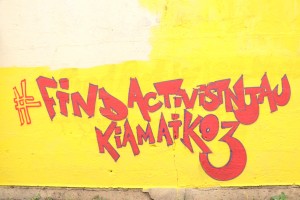
On 1st May 2020, Defenders Coalition supported another team of local artists from Kibera to erect a mural on a wall located on one of the busiest street leading in and out of the slum area.
Here, the artists erected murals of two people going through their daily activities; the first one is pulling a mkokoteni while the second one is riding a bodaboda – a motorcycle taxi. Both people are wearing a face mask. Similar messages as those erected on branded walls in Maringo Estate were also written on this wall.

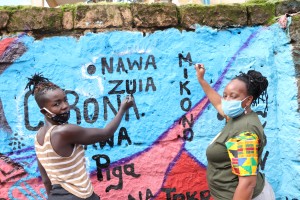
Prior to the wall painting, Defenders Coalition had supported women human rights defenders’ networks in the areas in efforts aimed at enhancing personal and public hygiene and respiratory etiquette during their work.
Defenders Coalition realizes that the effects of measures meant to mitigate COVID-19 are disproportionate between communities thus a need to sensitize them in a way that each community can relate to and act as required.
Human rights defenders, who are local leaders understand their communities well thus a pivotal point in determining the most appropriate way of packaging messages that communities can easily understand for action.
Defenders Coalition will continue to support human rights defenders’ creativity and innovativeness as they play the critical role of sensitizing community members, monitoring human rights violations and supporting the vulnerable to keep community members safe.
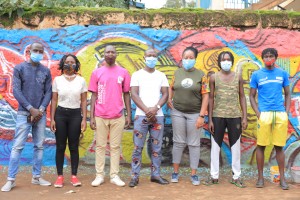
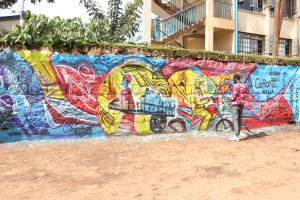
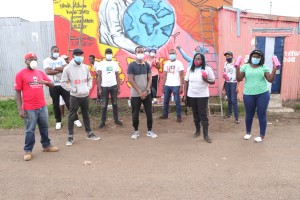
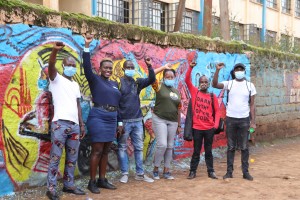
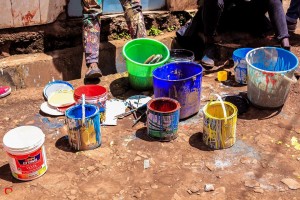
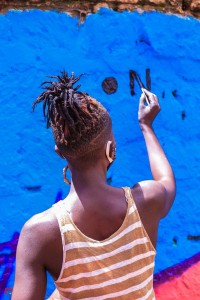
Twenty human rights organisations under the auspices of the Police Reforms Working Group have raised alarm following the disappearance of Michael Njau, Adan Mohammed Saibu and Samuel Mungai.

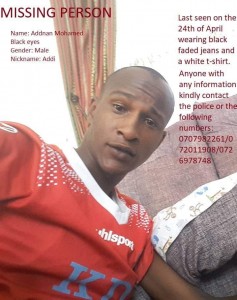

Reported missing on 24th April 2020 to Thika Police Station, the three men have been mysteriously missing for six days. The three were last seen in Thika town while driving back to Nairobi. They were driving in a car hire Silver Ractis registration number KCX 843M.
The car owner reported the matter at Githurai Kimbo Police Station on 26th April 2020 and Githurai Mwiki Police Station. The vehicle has since been moved to Thika Police Station for inspection where a missing person report was initially filed.
It has been close to a week since their families have reported their disappearance to the police. There has been no official information on the progress of the investigation. The twenty human rights organisations remind the law enforcement agencies of a number of cases of disappearances of human rights defenders. Michael Njau is an active community leader and member of the Kiamaiko Social Justice Centre.
Family, friends and human rights defenders are engaged in an active search for the three men. They have visited twenty-six police stations and twelve hospitals and morgues across Nairobi, Kiambu, Kajiado and Machakos in the last five days.
Every moment now counts. We acknowledge current efforts by the combined arms of the investigation, police and law enforcement agencies. We call on them to intensify their actions to ensure the safety and return of the three missing persons. We also call on the public to report any information to the local Police Station and 0716261113/0722926732.
Watch media coverage on their disappearance here https://www.youtube.com/watch?v=9i7VPxdq1Pc
This statement is endorsed by members of the Police Reforms Working Group, an alliance of several organisations
committed to professional and rule of law policing. They include the Social Justice Centres Working Group,
International Justice Mission, Independent Medical Legal Unit, Katiba Institute, Kenya Human Rights Commission,
Defenders Coalition, Haki Africa, Amnesty International Kenya, International Centre for Transitional Justice, The
Kenyan Section of International Commission of Jurists (ICJ Kenya), Usalama Reforms Forum, Federation of
International Women Lawyers (FIDA-K) Legal Resources Foundation, Transparency International Kenya, Shield For
Justice, Wangu Kanja Foundation, Peace Brigades International and Katiba Institute
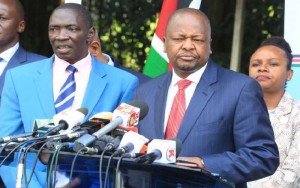
CALL TO UPHOLD HUMAN RIGHTS AND CLASSIFY HUMAN RIGHTS MONITORING AND OVERSIGHT BY CONSTITUTIONAL AGENCIES AS ESSENTIAL SERVICE PROVIDERS
Defenders Coalition welcomes measures that the government is implementing to contain the spread of the Corona Virus. We are however concerned that the exclusion of critical human rights actors and state oversight institutions from this classification will likely undermine public trust in a process that lacks sufficient assurance and oversight over respect for fundamental human rights in the country during this difficult time.
Today, Friday 27 March 2020, Defenders Coalition received an alert on excessive use of force by police officers in Mombasa County. The same was covered by media houses pointing at excessive use of force by National police service officers to disperse members of the public at Likoni Ferry Crossing. The victims of this unfortunate incident were innocent Kenyans who were headed home to beat the set time for the curfew that was commencing today at 7.00 pm. The incident happened at around 6.00 pm
On March 25, 2020, The Presidency addressed the nation on a raft of measures that the government was putting in place to combat the spread of Coronavirus Disease COVID-19 in Kenya. Standing out among them is the nationwide curfew between 7pm to 5am to be observed by all citizens except select institutions and professions classified as essential service providers.
With the WHO database indicating over 509,164 cases worldwide as of 27th March 2020, majority being reported within the past few weeks, and Kenya’s own cases rising rapidly from 1 to 31 within 14 days. The COVID-19 pandemic could meet the restriction threshold on certain rights and freedoms. However, even in the event of such restrictions, human rights safeguards, sufficient oversight and accountability mechanisms must be put in place.
The constitution of Kenya and international human rights law, specifically the International Covenant on Civil and Political Rights (ICCPR) and International Covenant on Economic, Social and Cultural Rights, which binds Kenya, guarantees everyone the right to the highest attainable standard of health and obligates governments to take steps to prevent threats to public health and to provide medical care to those who need it. The same law also recognizes that in the event of serious public health threats and public emergencies threatening the life of a nation, restrictions on some rights can be justified when they have a legal basis, are strictly necessary, based on scientific evidence and neither arbitrary nor discriminatory in application, of limited duration, respectful of human dignity, subject to review, and proportionate to achieve the objective.
Defenders Coalition is concerned on the measures being put in place for protection of at-risk populations. The government must realize that a broad-based curfew is difficult to impose and enforce uniformly, thus we fear that this measure might further expose these populations to a new murky depth of inequality, violations and marginalization. We call on the Government of Kenya to take into consideration the disproportionate impact on specific populations or marginalized groups as a result of the curfew.
We call for the classification of human rights organizations and other actors like the Law Society of Kenya (LSK), Kenya National Commission on Human Rights (KNCHR) and the Independent Police Oversight Commission (IPOA) as critical actors in the monitoring the implementation of government directives being implemented by state actors.
“By classifying these actors as essential service providers in the monitoring the implementation of government directives being implemented by state actors, that if not closely monitored may result to abuse of other fundamental human rights and freedoms. From today’s and previous experiences, this has proven the case,” says Kamau Ngugi, Executive Director, Defenders Coalition.
In addition to our call for their classification as essential service providers, we ask that they should be facilitated to respond to human rights violations unhindered.
Defenders Coalition
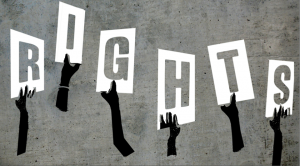
The Centre for Applied Human Rights (CAHR), through a grant from the Open Society Foundations, has set up a fund – Arctivists – to support activists and artists across the world responding to the outbreak of Covid-19 and its implications for human rights defenders, activism, and shrinking civic and political space. Paired activists and artists are able to apply for up to £3,000; it is envisaged that most grants will be for between £1,000 and £2,000.
The outbreak of Covid-19 has put a strain on governments around the world and is adversely affecting particularly vulnerable communities, activists and human rights defenders, including by further shrinking existing civic and political spaces. For example, in response to the Covid19 emergency, the Hungarian Parliament recently granted PM Viktor Orban the power to rule by decree, in a country that has already witnessed considerable restrictions on democratic spaces; in Colombia, shifting governmental priorities in the wake of the Covid-19 emergency have left rural and indigenous communities unprotected, thus facilitating the targeting of their leaders by illegal armed groups; Chinese activists who denounced the government’s approach to tackling the pandemic have been incarcerated for subversion; Algerian civil society organisations have denounced a government clampdown on anti-regime protesters taking place while the world is distracted by the pandemic. These are only some of the challenges that have resulted from the emergency framework adopted by several governments in response to the spread of Covid-19.
At the same time, the emergency has bred new responses, and forms of both local and global solidarity, that either build on existing, positive official or unofficial responses to the virus or compensate for a lack thereof. For example, media activists in Brazil, Perú, South Sudan and elsewhere are sharing public health information in their communities, in the form of comics, videos or cartoons; civil society organisations across Latin America are encouraging human rights workers to participate in therapeutic sessions where they can share their feelings through art, whether in the form of artefacts, stories or music.
Against this backdrop, and the obstacles to accessing reliable information regarding how responses to the virus are affecting civil society, synergies between activists and artists are more important than ever. For example, art in all its forms amplifies activism and facilitates conveyance of key messages and information, which may compensate for the lack or manipulation of official narratives. Where civic spaces have shrunk, art can provide an alternative venue for activists to broaden their movements and support their work despite curtailed democratic spaces. The imaginative spaces that art offers can bypass traditional barriers that governments may erect in an attempt to stymie civil society activism, for example, by conveying ambiguous or subtle messages. We recognise that the many activists are artists, and vice-versa – as such we will be flexible in how we apply these categories.
CAHR recognises that collaborative endeavours between activists and artists have the potential to provide innovative responses to the current Covid-19 emergency, whether in a reactive, therapeutic or imaginative form. We seek applications from activists and artists to address one or more of the following three objectives:
Document, monitor and analyse events in real time.
Reflect on wellbeing, both your own and that of your communities/ organisations.
Go beyond a reactive response to imagine new, alternative futures. This futureoriented work could assess how crisis and disruption open up new possibilities for creativity and innovation, as well as for regressive and repressive measures, and/or build on positive responses to the virus itself (local and global forms of solidarity).
Activists could write a diary, make a weekly podcast, write a blog, etc. Artists could work in their chosen media, to respond to the activist’s contribution and/or to wider developments in their country/region. We are open to innovative suggestions on the nature of the collaboration between activists and artists.
Activists and artists should apply by presenting a single collaborative project proposal that does not exceed two pages in length and includes the following:
A brief profile/bio of the artist(s) and activist(s) involved.
A brief description of the project/programme of work, highlighting in particular how it responds to the Covid-19 emergency and its links to activism and civic/political space; which of the 3 objectives set out above it responds to; any safety, security and ethical concerns, and how these will be addressed; whether it builds on existing initiatives or is a new collaboration, and through which media/methodologies it will be carried out.
The main beneficiaries and audiences of the project/programme of work and why the methodology/medium is appropriate for the local context.
Details of additional sources of funding or contributions.
The envisioned output(s) of the project/programme of work, for both the activist(s) and artist(s).
The amount of funding you are applying for, and a brief justification for the specific amount requested in the form of a basic budget and justification of resources (subsistence/salary costs can be included). It is envisaged that most grants will be for between £1,000 and £2,000. Additional justification will be required for larger awards, up to £3,000, for example, that the application involves groups of activists and/or artists.
One appendix featuring examples of artistic work can be included in the application. The appendix can be additional to the 2-page application.
While applications need to be in English, activist and artist outputs which are in part or completely in local languages are welcomed.
Clear description of the link between Covid-19, and responses to the virus, on the one hand, and threats to activism and civic/political space on the other, affecting either the artists/activists making the application and/or their country.
Evidence of a strong working relationship between the artist(s) and activist(s).
Feasibility and relevance of the project in challenging and difficult circumstances (including consideration of safety, security and ethics).
Evidence of innovation and creativity – notwithstanding point 3) above, we are willing to take risks with this fund to support work that is provocative and challenging.
The activist(s) and artist(s) are expected to provide a timeline for outputs in their application, between now and 31 December 2020. The artist(s) and activist(s) are also expected to submit a short joint report (2 pages) detailing the activities undertaken as well as all expenses incurred, by 31 January 2021. All inquiries and submissions should be directed to Piergiuseppe Parisi (piergiuseppe.parisi@york.ac.uk) and Pippa Cooper (pippa.cooper@york.ac.uk).
There is no fixed deadline for proposals – applications will be considered on a rolling basis over the coming months. We will endeavour to get back to applicants within 2 weeks. Successful proposals will be selected by a panel that will include CAHR staff and associates from a variety of backgrounds.
Copyright for the outputs remains the sole and exclusive property of the artist and the activist. Terms of reference/contracts will provide CAHR with the limited right to reproduce, publicly display, distribute and otherwise use the expected outputs in relation to CAHR’s work, and as an example of work commissioned through the Open Society Foundations’ grant. Copyright will be addressed in terms of reference/contracts developed with successful applicants.
CAHR will discuss anonymity, confidentiality and other ethical issues with artists and activists as they arise in relation to specific projects.
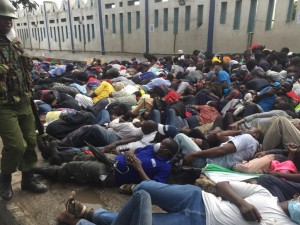
Police Must Stop the Use of Excessive Force while Enforcing the Curfew Order
March 27, 2020
The civil society’s Police Reforms Working Group, comprised of twenty national human rights organisations, condemn the unnecessary and excessive use of force by Kenya Police Service officers yesterday at the Likoni Ferry Crossing, Mombasa. The police actions completely betrayed the specific responsibility bestowed upon them by the President; to facilitate orderly passage of commuters on the Likoni crossing.
Alongside elected leaders and members of the public, we were horrified by the excessive use of police force contrary to the functions of the Police laid out in Article 244 of our constitution. Police indiscriminately threw teargas, frog marched and beat up members of the public trying to get home in time for the curfew.
We also condemn the assault of Nation Media Group Journalist Peter Wainaina by a uniformed police officer during the operation. We remind the Police that journalists and media houses are among the essential services exempted from the curfew order as per the Schedule published by the Ministry of Interior.
It is unbelievable that this violence took place two hours before the designated curfew time of 7.00pm. It is essential that Kenyan law and international human standards are respected. Police bear a duty to maintain public order and enforce the law. They may only use force when strictly necessary. Where the use of force is unavoidable, it must also be done with restraint.
We continue to receive testimonies from victims, eyewitnesses and video footage showing police gleefully assaulting members of the public in other parts of the country. We note that in most instances, few posed no immediate threat to the police officers or others. The use of force and beatings was unnecessary and unlawful.
One day before the Likoni Ferry fiasco, the National Police Service Inspector General issued clear instructions to his officers. These instructions clearly state his commitment to hold sub-commanders accountable for any police actions that lead to congestion, crowding or violate social distancing rules. We ask him to honor his own word by disciplining the Sub-Commander in charge of yesterday’s fiasco. We also call upon Officers Commanding Station (OCSs) to be guided by the Bail and Bond Policy Guidelines as they deal with petty offenders at the station level.
We further call upon the National Police Service Inspector General to restrain his officers from using teargas to avoid potential spread of COVID-19. Hundreds were forced to cough, vomit, spit and touch their faces to wipe away tears and unblock their mouths and noses. If the operation was supposed to protect people from spreading the virus, the operation achieved the exact opposite. It is imperative that Ministry of Health guidelines on prevention of the spread of COVID-19 are followed by Police at all times.
Police officers appear confused on who is included in the categories of critical and essential services on the first night of the curfew. We have testimonies from suppliers and trained medical practitioners who experienced intimidation and threats of arrest as they tried to provide services during the curfew. Their free movement must be protected.
Lastly, we call upon the Internal Affairs Unit of the National Police Service, the Independent Policing Oversight Authority and the Kenya National Commission for Human Rights to investigate all reports of excessive use of force and unlawful policing with a view to holding perpetrators individually responsible. We encourage members of the public to immediately report any intimidation, extortion or violence to these agencies. Public order management must not be used to inflict pain, fuel panic and fear at this at this difficult time.
We shall intensify our monitoring of the curfew in the public interest.
This statement is signed by the Law Society of Kenya – Mombasa and members of the Police Reforms Working Group, an alliance of several organisations committed to professional and rule of law policing. They include the Social Justice Centres Working Group, International Justice Mission, Independent Medical Legal Unit, Kenya Human Rights Commission, Defenders Coalition, Haki Africa, Amnesty International Kenya, International Centre for Transitional Justice, The Kenyan Section of International Commission of Jurists (ICJ Kenya), Usalama Reforms Forum, Federation of International Women Lawyers (FIDA-K) Legal Resources Foundation, Transparency International Kenya, Shield For Justice, Wangu Kanja Foundation, Peace Brigades International and Katiba Institute
Photo Credit: Daily Nation
PRESS STATEMENT BY THE NATIONAL VICTIMS AND SURVIVORS NETWORK, MISSING VOICES COALITION, MOTHERS OF VICTIMS AND SURVIVORS NETWORK AND THE KENYA TRANSITIONAL JUSTICE NETWORK ON THE COMMEMORATION OF THE INTERNATIONAL DAY FOR THE RIGHT TO THE TRUTH CONCERNING GROSS HUMAN RIGHTS VIOLATIONS AND FOR THE DIGNITY FOR VICTIMS
24 MARCH 2020
Kenya, like the rest of the world is navigating through an uncharted territory as we grapple with and impede the spread of the coronavirus, COVID-19. While we welcome the measures and mechanisms put in place by the government of Kenya, we note the following human rights concerns:
▪ The vulnerable and marginalized populations, in particular women and girls within informal settlements, and housing with population density are experiencing immense challenges in accessing adequate and quality water, sanitation, and adequate food;
▪ Security and safety for women and girls is threatened and not guaranteed as they seek scarce water for their households in a bid to comply with public health instructions of mitigating COVID-19;
▪ Continued challenges and barriers in accessing affordable, adequate and quality health care services in the already constrained health care system;
▪ Arrests and extortion of members of public by police officers who are taking advantage of lack of awareness of what is expected of them in respect of COVID-19; and
▪ Threat to, and occurrences of sexual and gender-based violence, in part driven by loss of livelihood, hence contributing to already worrying incidents of this violence, especially directed at women and girls.
As we point out these human rights concerns, we highlight that today marks an important international Human Rights Day that commemorates The Right To The Truth Concerning Gross Human Rights Violations And For The Dignity For Victims. We, the victims and survivors of the following gross human rights violations namely: summary executions, sexual violence during electoral periods in Kenya, enforced disappearances, and torture, together with our families, supporters, advocates and friends are commemorating this day to: –
Honour the memory of victims of gross and systematic human rights violations and promote the importance of the right to truth and justice; and
Pay tribute to Kenyans who have devoted their lives to, and lost their lives in the struggle to promote and protect human rights for all.
Collectively, we are concerned by the lack of political and good will to address gross human rights violations a practice that only perpetuates a culture of impunity, systematic exclusion and socio-economic inequalities that continue to spread to other aspects of our lives as Kenyans.
We, the victims and survivors of gross human rights violations in pursuit of truth and justice took part in the Truth, Justice and Reconciliation Commission (TJRC) process by submitting our statements, memoranda and by taking part in the hearings. We have subsequently and consistently petitioned various government agencies including the Office of the Attorney General and Senate’s Justice and Legal Affairs Committee calling for the urgent adoption and full implementation of the TJRC report. We are concerned by the protracted delay and failure by the Government to fully adopt and implement recommendations of the TJRC Report especially as regards reparations of victims. To-date majority of survivors and victims of these gross human rights violations contend with medical and psychological harm, loss of loved ones, loss of livelihood, stigma and fear.
In 2007/08 post-election period approximately 900 sexual violence were documented by the Commission of Inquiry into the Post-Election Violence (CIPEV) and in a sad turn of events during 2017 electoral period approximately 201 sexual violence were documented in 11 counties by the Kenya National Commission on Human Rights. The survivors of electoral related sexual violence of which the majority are women including those who bore children out of their rape ordeal are particularly perplexed that the government gazetted the TJRC report excluding its volumes IIA and IIC on sexual violence and other gross human NVSN
Page 2 of 2
rights violations. The vagaries, impact and consequences of this particular violation remain unrecognized and unresolved physically, socially, emotionally and are still felt to date,. Particularly when it is noted that these perpetrators that include police officers have not been held accountable.
Survivors of electoral related sexual violence victims filed constitutional cases numbers Constitutional Petition No. 273 of 2011 (CP 273/2011); Constitutional Petition No. 122 of 2013 (CP 122/2013); and, Constitutional Petition No. 15 of 2014 seeking redress that occurred during electoral periods. Unfortunately, these cases remain inordinately delayed more than 8 years.
We sadly continue to note occurrence of enforced disappearance and summary execution. In 2019, a report released by the Missing Voices Coalition disclosed that Kenyans witnessed 107 summary execution of fellow Kenyans by police officers. Most of these victims of summary execution are young Kenyan men from informal settlements.
In commemoration of this International Day For The Right To The Truth Concerning Gross Human Rights Violations And For The Dignity, we demand the following:-
1. The truth concerning H.E President Uhuru Kenyatta’s directive of March 2015 to the National Treasury for the establishment of the Kshs. 10 billion Restorative Justice Fund for purposes of healing and reconciliation to the victims of historical injustices. Further, the truth about what became of the Draft Policy and Regulations that were developed in partnership with the office of the Attorney in 2018 for purposes of anchoring the Restorative Justice Fund under the Public Finance Management Act No. 18 of 2012. We demand for the immediate and comprehensive reparations for all victims and survivors of gross human rights violations including their families from the Restorative Justice Fund (that should be increased according to the needs and numbers of the victims and survivors).
2. The truth behind the delay in full operationalization of the Victim Protection Act No. 17 of 2017 that provides for assistance and protective measures to victims of crime. We demand the urgent full operationalisation of this Act.
3. Truth as to why it has taken 2 years to fully operationalise the Prevention of Torture Act No. 12 of 2017 and the National Coroners Service Act No. 18 of 2017, which are useful human rights tool to curb extra judicial executions and torture by rogue police officers. We demand for immediate full operationalization and implementation of these laws.
4. Immediate adoption and full implementation of the TJRC report and its recommendations.
5. Prioritisation and the finalisation of court cases No. 273 of 2011 (CP 273/2011); No. 122 of 2013 (CP 122/2013); and, No. 15 of 2014.
6. Honouring of court awards and full compensation to the victims of Nyayo House Torture Chambers who have successfully sued the state and are yet to be paid.
Finally, during this perilous times of the Corona Virus (COVID-19), we urge the Government of Kenya to institute enough measures to contain and prevent the further spread of the killer virus and in so doing to observe, protect and promote human rights for all Kenyans regardless of their socio-economic status.
Thank you,
NATIONAL VICTIMS AND SURVIVORS NETWORK,
MOTHERS OF VICTIMS AND SURVIVORS NETWORK
MISSING VOICES COALITION
THE KENYA TRANSITIONAL JUSTICE NETWORK